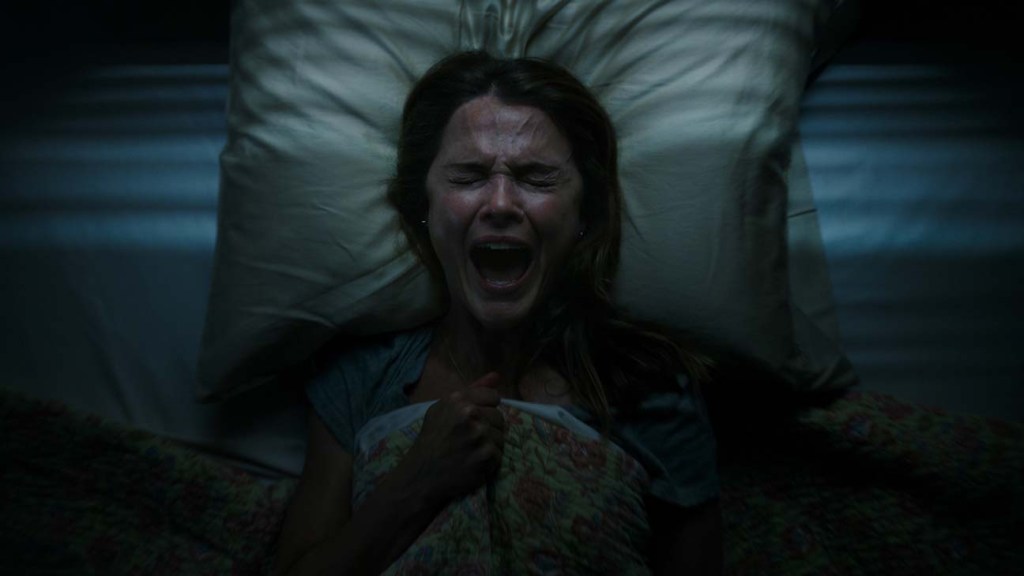Scott Cooper returns to a bleak American landscape with Antlers, a horror film that riffs on the Wendigo legend. The film stars Keri Russell as a teacher returning home to her childhood mountain town in rural Oregon, carrying a history of abuse at the hands of her father. Living in the family home with her sheriff brother (Jesse Plemons), she sees the ghost of her past reflected in her ostracized student Lucas (Jeremy T. Thomas). But at home with Lucas is far more than what she suspects: it’s not just the horror of the home, but a monster that has been brewing in the mountains, in this community, and in the national identity. In the hands of Cooper, the result is a scareless thriller that handles the opioid epidemic and child abuse with the humanity and, perhaps more crucially, intention of a muckraking local news segment.
The symbolism of Lucas’ predicament is striking in its potential, something that could be as equally terrifying for audiences as incisive for how it reflects the torment that opioids inflicts upon communities. Yet Cooper composes Antlers with the murk and lifelessness of his previous films. Even with a clarity of concept and adequate eye for visual cohesion, the film is potency free, palpable in tone because of the grimness Cooper wields but never because you actually feel anything. He is dealing in dark material but his fatalism still remains unearned due to the porous character building and lack of dimension to the narrative he builds. It’s all too vague, too broadly dispatched, and too overlooking of the development its characters.
The film plays irresponsibly with matters of child neglect and sexual abuse to facile ends, using harrowing everyday terrors as window dressing for an unimaginative genre exercise. Cooper seems to be going for a stroll through cultural rots and tossing them in the mix at random and utilizing them only ornamentally, from climate change to the indifferent bureaucracy of the public school system to the suffering of Indigenous people. But the spectre of widespread addiction looms largest, and just as clumsily handled. If you are going to ask an audience to journey through such dark subjects, you do not owe them any optimism on the other side of the story, but you do owe them some intention in how you handle it. Though his career has jumped around in genres from westerns to mob movies, here Cooper is working in a genre that underlines rather than obscures his lack of dramatic acumen.
One wonders how long Cooper will be given the opportunity to keep riding his own wave of flat, depth-free nihilism. When even his best film (the tragic Out of the Furnace, also surrounding the relationship between drugs and rural life) is pathologically determined to shove his characters’ noses and souls in shit past what is narratively necessary, Cooper’s films struggle to grasp that people are not merely avatars for suffering. For Cooper they aren’t just defined by that suffering, that is their sole characteristic; he wants human drama, but incorporates no human dimension. His vision never seems to conjure any recognizable life at all, turning his characters solely into functionaries for his punishment on the audience.
Antlers is unlikely to satisfy many, not to horror aficionados looking for an original genre fix and not to audiences looking for a high-minded lens on contemporary ills. Without a meaningful statement beyond “rural America is hell,” and without characters that register on a deeper level than their function, this is another misfire for Cooper.
D+


